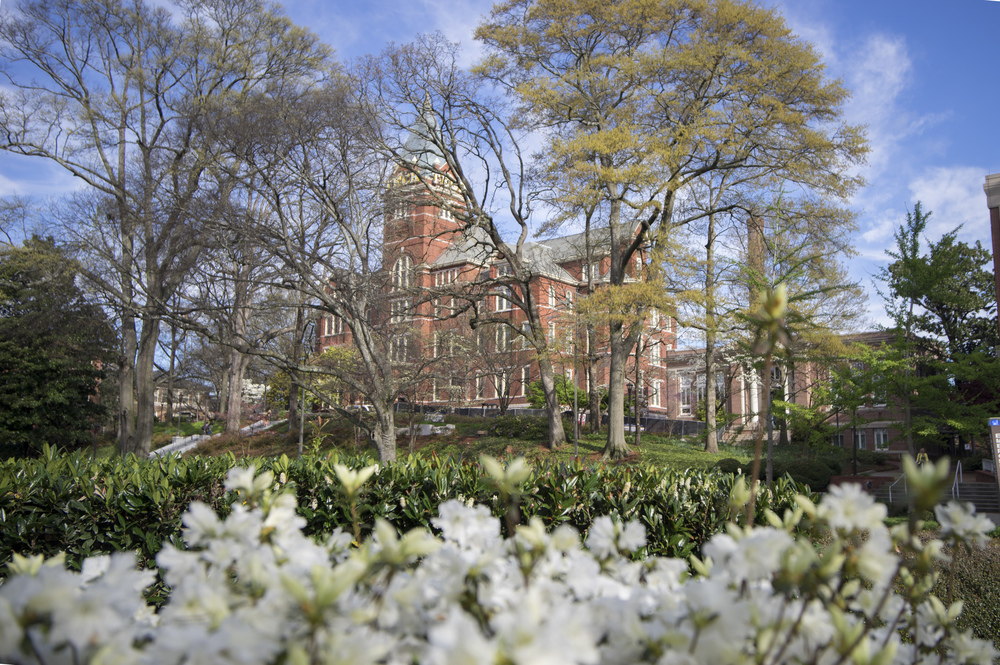The recently announced College of Sciences Strategic Plan: 2021-2030 has three ambitious goals at its foundation, each of which are focused on striving for excellence — in the workplace, in training and education, and in research. A trio of themes connect across the plan’s goals to guide this work and strategy: catalyze discovery and solutions, amplify the College’s impact, and build communities of excellence. Explicit in the strategic plan are expectations and goals to enhance inclusivity, equity, and diversity, especially of underrepresented groups in the College.
In January of this year, the College released a call for proposal submissions that reflect these themes and accomplish these goals. At that time, all students, staff, and faculty in the College’s community were encouraged to work in collaborative and interdisciplinary teams to submit proposals for projects.
Collective funding to achieve the proposals is provided through a generous $300,000 investment by the Betsy Middleton and John Clark Sutherland Dean's Chair. “I can think of no better use of the Sutherland Chair funds than to invest in ideas from our community. I expect this investment to pay dividends in the years ahead,” notes Susan Lozier, College of Sciences Dean and Betsy Middleton and John Clark Sutherland Chair.
“We were gratified to receive a large number of proposals from across the College of Sciences community, including proposals led by students, staff, and faculty,” says Julia Kubanek, Associate Dean for Research in the College of Sciences, and a professor in the School of Biological Sciences and the School of Chemistry and Biochemistry. “Each of the strategic plan goals are represented among the proposals we received. All proposals were group efforts, and many represented interests from members of different academic programs and schools within our college. Among the proposals received, members of all six of our schools participated.”
“These projects and programs will lay the groundwork for meeting the goals of our strategic plan,” Kubanek adds. The dozen new projects include team-building efforts for collaborative research, staff professional development, recruitment of underrepresented minorities into academic programs and postdoctoral training, and several other initiatives:
Astrobiology Program
PI (Principal Investigator): Jennifer Glass, associate professor in the School of Earth and Atmospheric Sciences
Research (Astrobiology); Communities of Excellence
Center for Microbial Dynamics & Infection Postdoctoral Recruitment Program
Co-PIs: Sam Brown, professor in the School of Biological Sciences and Marvin Whiteley, professor in the School of Biological Sciences, Georgia Tech Bennie H. and Nelson D. Abell Chair in Molecular and Cellular Biology, Georgia Research Alliance Eminent Scholar, and Co-Director, Emory-Children’s CF Center (CF@LANTA)
Research (Microbial Dynamics and Infections); Communities of Excellence; Diversity/Inclusion (Historically Underrepresented Groups)
Deliberate Innovation in Undergraduate Biology
PI: Chrissy Spencer, senior academic professional in the School of Biological Sciences
Education/Training; Amplify Impact
Empowering Strengths-Based College of Sciences Team Members
PI: Christie Stewart, academic professional in the School of Biological Sciences
Communities of Excellence
ENTANGLED (Graduate Students in Quantum Sciences)
PI: Martin Mourigal, associate professor in the School of Physics
Research (Quantum systems); Education/Training; Communities of Excellence
Georgia Tech Summer Research Academy (SRA)
PI: Shania Khatri, undergraduate research assistant and Stamps President's Scholar in the School of Biological Sciences
Education/Training; Undergraduate Recruitment; Communities of Excellence; Diversity/Inclusion
Initiative for Living Dynamic Systems
Co-PIs: Simon Sponberg, Dunn Family Associate Professor of Physics and Biological Sciences and Daniel Goldman, Dunn Family Professor of Physics
Research (Physics of Movement); Growing Faculty Leadership; Communities of Excellence
Strategic Development at the Interface of Human and Environmental Health
Co-PIs: Joshua Weitz, Patton Distinguished Professor in the School of Biological Sciences and co-director of the Interdisciplinary Ph.D. in Quantitative Biosciences and Greg Gibson, Patton Distinguished Professor in the School of Biological Sciences, Director of the Center for Integrative Genomics, and Genome Analysis core of the Petit Institute for Bioengineering and Bioscience
Research; Growing Faculty Leadership; Communities of Excellence
Nucleating Artificial Intelligence and Machine Learning Collaborations in the College of Sciences
PI: Roman Grigoriev, professor in the School of Physics
Research (Data Science); Growing Faculty Leadership; Communities of Excellence
Project Potty Parity
PI: Mike Schatz, interim chair and professor in the School of Physics
Communities of Excellence; Diversity/Inclusion
Staff Advisory Council Strategic Plan Proposal
PI: Kathy Sims, development assistant in the College of Sciences, chair of the College of Sciences Staff Advisory Council, and member of the College of Sciences Task Force for Racial Equity
Communities of Excellence
Urban Heat Islands
PI: Kim Cobb, Georgia Power Chair, ADVANCE Professor, and Director of the Global Change Program at Georgia Tech
Research (Climate science); Education/training; Communities of Excellence; Diversity/Inclusion
Learn more about the College of Sciences Strategic Plan: 2021-2030 and coordinating Implementation Guide.
For More Information Contact
Jess Hunt-Ralston
Director of Communications
College of Sciences at Georgia Tech



